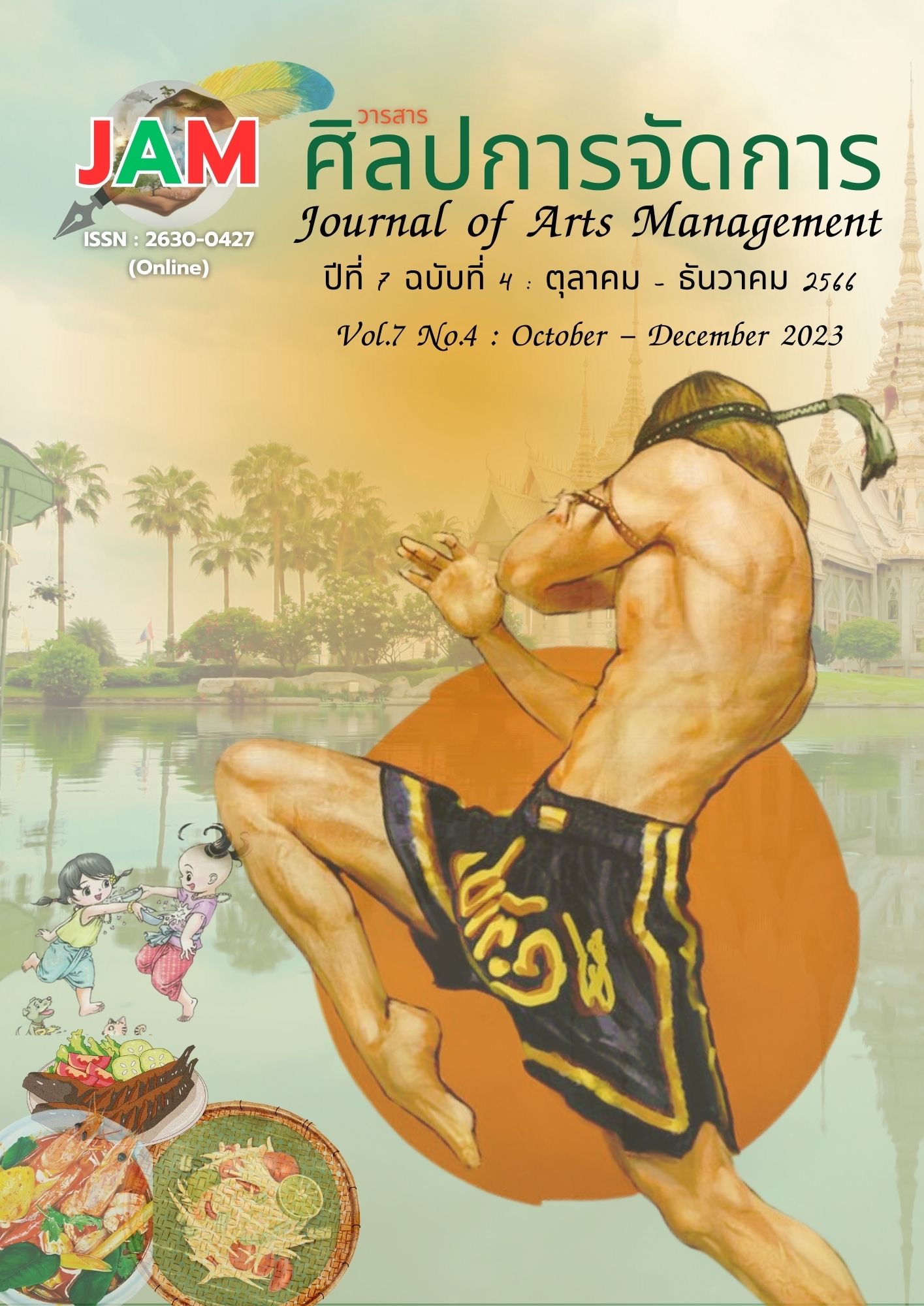Political Communication through Literature of Mom Rajawongse Kukrit Promoj: A Study of B.E. 2492-2532
Main Article Content
Abstract
This research study was conducted on the topic of "Political Communication through the Literature of Mom Rajawongse Kukrit Pramoj: A Study of 2492-2532 B.E." The study aimed to achieve two main objectives. Firstly, it aimed to examine the political context that influenced the communication process through the literature of Mom Rajawongse Kukrit Pramoj. Secondly, it aimed to study the process of political communication through the literature of Mom Rajawongse Kukrit Pramoj. To achieve these objectives, the study employed Brian McNair's model of political communication, content analysis techniques, and symbolic analysis.
The results of the research found that.
1. In 1932, the Thai government underwent a change which resulted in the king being placed under the constitution. However, M.R. Kukrit believed that the Thai people needed to have a unified mindset. To this end, he wrote literature that contained royalist political ideas and characters that were loyal to the monarchy. Although there were opposing views to the change of government, some saw it as a violent act and believed that it was not yet the right time. Additionally, Kukrit's literature emphasized the glory and prosperity of the royal court's past.
2. The process of communicating political ideas through literature involves a messenger who possesses both communication skills and political experience. This enables them to effectively convey their message in a language that is easy for the audience to comprehend. When an author wishes to write about a significant event, they will create characters who play a role in the event, as seen in works such as Four Reigns literature. Historical events serve as the plot and setting, and each character reacts to the situation accordingly. The communication channels utilized in this process include literary works that have been published as books, plays, and movies. The audience for these works can either be readers or viewers of performances based on literature.
Article Details

This work is licensed under a Creative Commons Attribution-NonCommercial-NoDerivatives 4.0 International License.
Views and opinions appearing in articles in the Journal of Arts of Management It is the responsibility of the author of the article. and does not constitute the view and responsibility of the editorial team I agree that the article is copyright of the Arts and Management Journal.
References
Agree, W.K., Emery, E., & Ault, P. (1994). Introduction to Mass Communication (11th ed.). Harper Collins.
Berlo, D. K. (1960). The Process of Communication: An Introduction to Theory and Practice. Holt, Rinehart and Winston.
Chuto, N. (2008). Qualitative Research. (4th ed.). Printpro.
Gurevitch, M., & Blumler, J. G. (1977). Linkages between the Mass Media and Politics: A Model for the Analysis of Political Communication Systems. In J. Currran, M. Gurevitch & J. Wollacott (Eds.), Mass Communication and Society (pp. 270–290). Edward Arnold.
Kaewthep, K. (1999). Media Analysis: Concepts and Techniques (2nd ed.). Edison Press Products.
Khemabulakul, S. (2015). Political communication of Mom Rajawongse Kukrit Promoj: A Study of B.E. 2488-2538[Doctor of Philosophy Thesis Department of Political Communication, Krirk University].
Kruarattikan, S. (2018). The Novel Four Reigns in the Context of Thai Politics. Sukhothai Thammathirat Political Science Journal, 2(2), 35-52. https://so06.tci-thaijo.org/index.php/polsci-stou/article/view/212125
Mcnair, B. (2011). An Introduction to Political Communication (5th ed.). Routledge. https://doi.org/10.4324/9780203828694
Natchamnong, T. (2011). Journalist named Kukrit. Pump Station Corporation.
Nimpanich, J. (2008). Qualitative Research in Political Science and Public Administration. (2nd ed.). Chulalongkorn University.
Pramoj, K. (1963). Four Reigns. (6th ed.). Phrae Pittaya.


